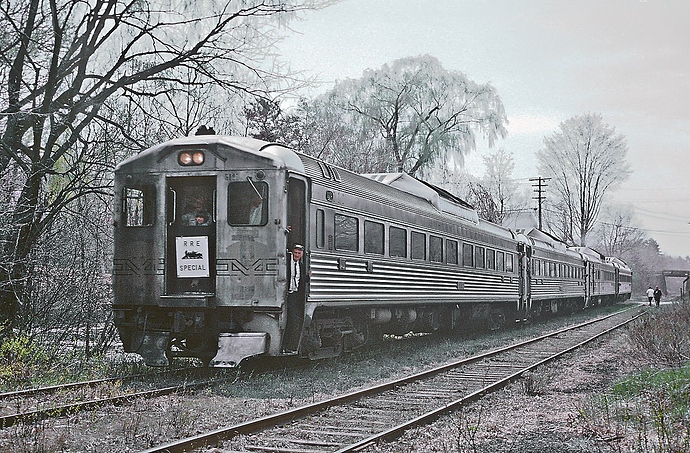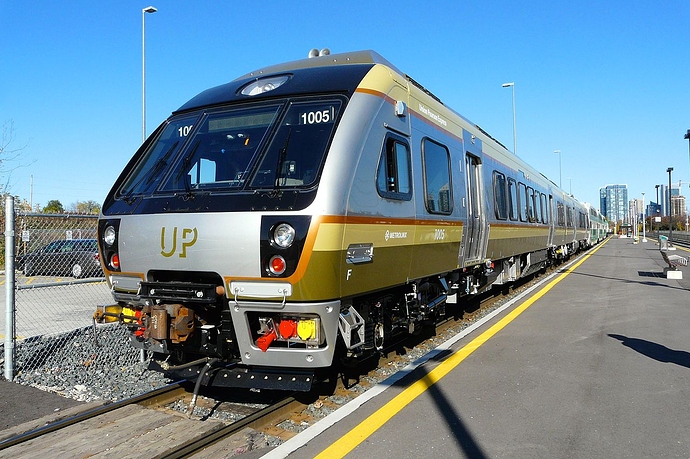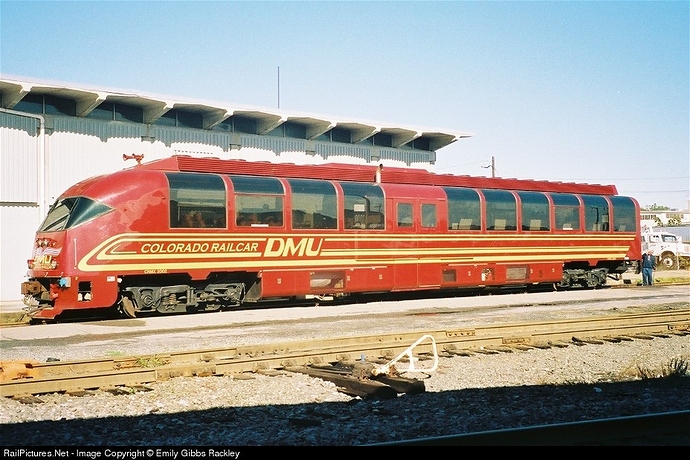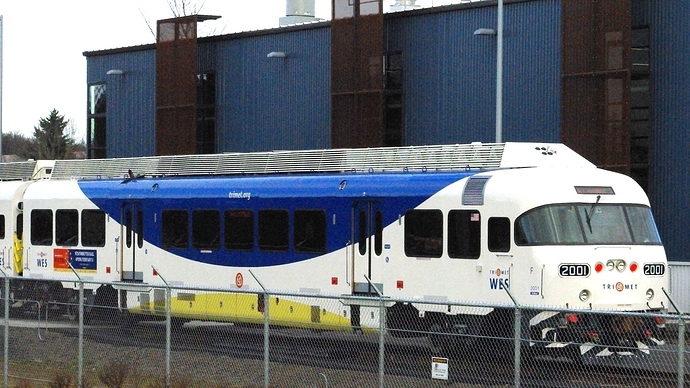Now, on to equipment - Diesel Multiple Units
The Budd Rail Diesel Car, RDC or Buddliner is a self-propelled diesel multiple unit (DMU) railcar. Between 1949 and 1962, 398 RDCs were built by the Budd Company of Philadelphia, Pennsylvania, United States. The cars were primarily adopted for passenger service in rural areas with low traffic density or in short-haul commuter service, and were less expensive to operate in this context than a traditional diesel locomotive-drawn train with coaches. The cars could be used singly or coupled together in train sets and controlled from the cab of the front unit. The RDC was one of the few DMU trains to achieve commercial success in North America. RDC trains were an early example of self-contained diesel multiple unit trains, an arrangement now in common use by railways all over the world.
Budd RDCs were sold to operators in North America, South America, Asia, and Australia. They saw extensive use in the Northeast United States, both on branch lines and in commuter service. As passenger service declined in the United States the RDC was often the last surviving conveyor of passengers on a particular route. Most RDCs were retired by the 1980s. In Canada, RDCs have remained in continuous use since their introduction in the 1950s. The RDC inspired several derivatives, including the unsuccessful Budd SPV-2000. The New York Central Railroad strapped two jet engines to an RDC in 1966 and set a United States speed record of 184 mph, although this experimental configuration was never used in regular service.
A railfan favorite, the RDC’s have enjoyed a surprisingly long service life with legacy units still being used, the last being in Vermont which has yet to get started in active service.
In 2011, the Federal Railroad Administration established a new set of safety guidelines regarding passenger rail equipment operating in territories where they operate with freight equipment. This directly impacts Amtrak as well as agencies operating commuter service. Canada has adopted similar crash-worthiness guidelines as well.
Even when there is zero possibility of a passenger train colliding with a freight train, FRA buffering regulations still apply. These days, there are virtually no freight trains running on the Caltrain line, but Caltrain must still run its fleet to those specifications because the line connects to the national rail network.
The situation also applies to the Long Island Rail Road (LIRR) in New York City, which has no freight traffic and a modern, automatic train control system to prevent collisions. Technically, it is still a freight railroad subject to FRA rules. Thus, the new M-7 railcars purchased by the New York MTA weighing in at 125,000 lbs – twice the weight of a non-FRA compliant BART car on the off-chance an LIRR might collide with a 100-ton coal train.
So, with that in mind, there have been three different DMU’s which have been built and operated in North America.
The Nippon Sharyo DMU is a model of diesel multiple unit passenger train designed and manufactured by Nippon Sharyo for the North American market, and compliant with FRA Tier 1 crash-worthiness standards. 18 pairs have been delivered to Sonoma–Marin Area Rail Transit (SMART) in Sonoma and Marin Counties, California, and 18 pairs are in use by Metrolinx for the Union Pearson Express airport link in Toronto, Ontario. These were built at a new facility in Rochelle IL which eventually closed in October 2018 due to a lack of orders.
Colorado Railcar developed another DMU for the North American market, and one agency purchased sets for use – Portland Tri-Met for their WES (Westside Express Service) Commuter Rail. Three pairs were delivered as Colorado Railcar went through bankruptcy, and the agency supplemented their fleet with two Budd RDC’s.
US Railcar has purchased the assets of Colorado Railcar, and is based in Columbus OH. But, with the failure of the 3-C (Cleveland, Columbus, Cincinnati) service, US Railcar has no manufacturing facility nor delivered units.
Colorado Railcar’s demo unit…
A Colorado Railcar DMU in service in Portland OR
Stadler Rail of Switzlerland has their GTW model of DMU which has demonstrated a certain degree of success in the North American market. These have been deployed on New Jersey Transit’s River Line, Austin’s Capital MetroRail, Denton County Texas’ A-Train, and East Bay California’s eBART service.
A Stadler GTW in Trenton NJ…




